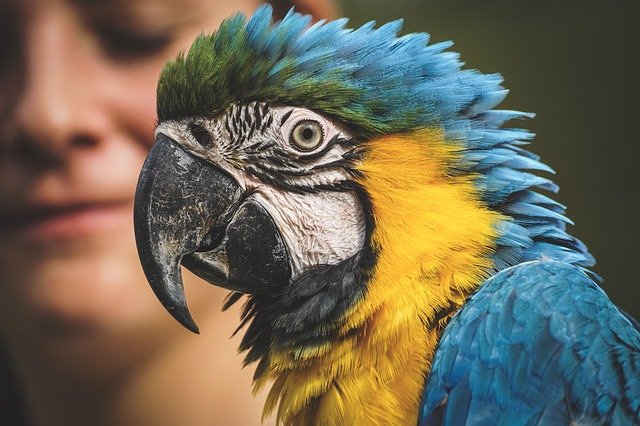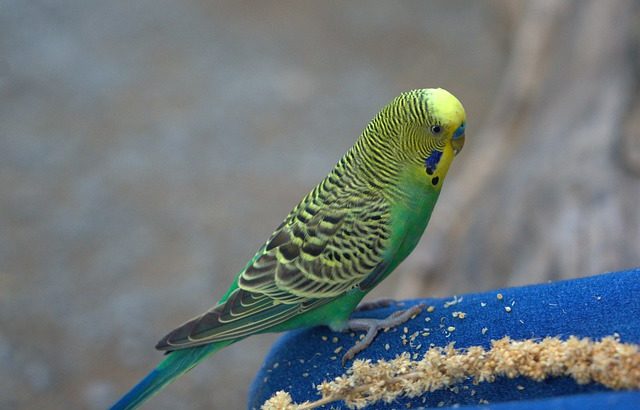Common Services Offered By Avian Veterinarians
Dogs and cats aren’t the only types of animals seen by veterinarians. Many veterinarians offer services for birds as well. According to the American Medical Veterinary Association (AVMA), over 3.5 million households in the United States own a pet bird. From parakeets and parrots to finches and cockatiels, these birds often require veterinary services. What services do avian veterinarians offer exactly?
Annual Checkups
Like with most other types of animals, owners should schedule an annual checkup for their birds. An annual checkup consists of a one-year examination that’s performed by an avian veterinarian. It’s a form of preventative veterinary medicine. During an annual checkup, the avian veterinarian will physically examine the owner’s bird for signs of disease and injury. The avian veterinarian may run tests on the owner’s bird as well to identify potential health risks. Annual checkups are one of many services offered by avian veterinarians.
Vaccinations
Avian veterinarians may offer vaccinations for birds. Birds aren’t immune to infectious diseases. They can still become infected with viral and bacterial diseases. Fortunately, there are vaccines available to protect birds from these diseases. The polyomavirus vaccine, for instance, is designed to protect birds from the polyomavirus. When a bird becomes infected with this disease, it may develop feather lesions and skin tumors. In some cases, the polyomavirus can cause death. Avian veterinarians offer vaccinations to protect birds from the polyomarivurs.
Nutrition Advice
Many bird owners seek nutrition advice from avian veterinarians. Birds require a specific type of diet to minimize their risk of diseases. Most birds will eat about one-half to one-quarter of their body weight in food per day. The specific type of food a bird should eat, though, will vary depending on several factors. Different species of birds require different types of food. The age of a bird will also affect its diet. Rather than trying to guess their pet bird’s diet, owners can seek nutrition advice from an avian veterinarian. Avian veterinarians can provide a diet plan that’s catered specifically to the owner’s pet bird.
Surgeries
Birds often require surgery to treat physical injuries and other adverse medical conditions. Birds may swallow foreign objects, for example, that cause a blockage in their gastrointestinal tract. Assuming the bird doesn’t pass the foreign object, it may require surgery. Avian veterinarians can perform surgery to remove the blockage. Of course, there are many other types of surgeries that avian veterinarians can perform. Nonetheless, removing gastrointestinal blockages is one of the most common.

Bone Splints
Avian veterinarians offer treatment for broken bones in birds. Birds have a unique bone structure when compared to mammals. While most mammals, including humans, have solid bones, birds have hollow bones. Their hollow bone structure reduces their weight while allowing them to fly more easily. With that said, hollow bones are also more likely to fracture than solid bones. Avian veterinarians can treat broken bones in birds, however. Treatment typically consists of immobilizing the broken bone in a splint. Once the broken bone has mended itself, the splint is removed.
Joint Bandages
For inured joints, avian veterinarians may use bandages. Bandages can be wrapped around a bird’s injured point to reduce inflammation while simultaneously promoting a speedier and more complete recovery. The bandages used in this treatment consist of standard gauze or medical wrappings. Avian veterinarians can wrap bandages around the problematic joint to apply pressure. With pressure placed upon the injured joint, it will heal more quickly.
Beak Trimming
Beak trimming is another service offered by avian veterinarians. As the name suggests, it involves trimming a bird’s beak. Most birds don’t require beak trimming. There are instances, however, in which this service may prove useful. Some birds may pick their feathers, resulting in infection-prone wounds. Beak trimming offers a solution. With a shorter and duller beak, birds may no longer be able to pick their feathers. For beak trimming, owners can take their birds to a local avian veterinarian.
Microchipping
Unbeknownst to many bird owners, avian veterinarians offer microchipping. Microchipping is a service that involves the implantation of a microchip under a bird’s skin. The microchip isn’t particularly big. On the contrary, it’s about the size of a single rice grain. The purpose of microchipping is to increase the chance of a successful reunion if the bird flies away or otherwise becomes lost. Microchips contain information about the birds with which they are used. They also contain the name and address of the owner. If the bird is picked up by animal control, the owner can be found and reunited with his or her pet bird.
In Conclusion
These are just a few of many services offered by avian veterinarians. Avian veterinarians are licensed professionals who treat birds. Some of them are standard veterinarians, whereas others are AVMA-recognized specialists. Regardless, avian veterinarians offer medical services for birds, some of which include annual checkups, vaccinations, nutrition advice, surgeries, bone splints, joint bandages, beak trimming and microchipping.

